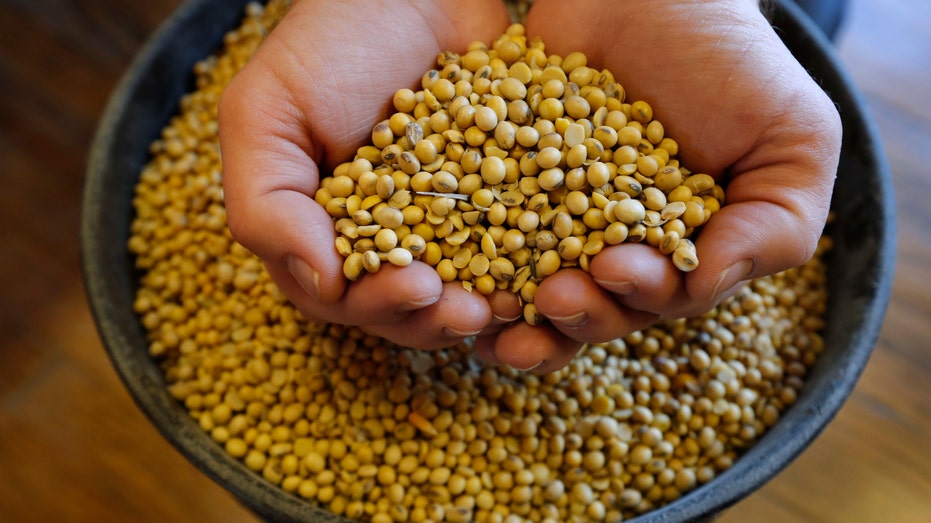China just threw its next punch in the trade war
China isn't backing down in its trade war with the United States.
Beijing responded to President Trump's threat to place new tariffs on Chinese goods on Monday by letting its currency, the Chinese yuan, sink to the weakest level in over a decade and ordering state-owned companies to reportedly halt their purchases of U.S. agricultural products.
The onshore Chinese yuan weakened to worse than seven per U.S. dollar, hitting its lowest level since 2008, as Beijing looks to cushion the blow from Trump's tariffs. A weaker yuan makes Chinese goods cheaper for overseas buyers, which may be necessary as China just lost its spot as the US's biggest trading partner.
Trade data released Friday by the Department of Commerce showed U.S. imports from China fell by 12% in the first six months of the year, allowing Mexico to supplant it as the U.S.'s biggest trade partner.
"China dropped the price of their currency to an almost a historic low," Trump tweeted on Monday. "It’s called “currency manipulation.” Are you listening Federal Reserve? This is a major violation which will greatly weaken China over time!"
Last week, Trump said beginning Sept. 1 the U.S. would place a 10% tariff on the remaining $300 billion of Chinese goods. He went ahead with the announcement despite objections from his advisers.
The president warned he could "always do much more" with respect to tariffs, adding the 10 percent tax could go "well beyond 25 percent" if necessary. Earlier this year, the administration placed a 25% tariff on $250 billion worth of Chinese goods.
Weakening the yuan isn't the only form of retaliation Beijing took on Monday. It also ordered state-owned enterprises to stop purchases of U.S. agricultural products, according to a Bloomberg report, citing people familiar with the situation.
That is a reversal from just last week, when Beijing said it had purchased several tons of U.S. soybeans as a gesture of a goodwill amid trade negotitations. Before the trade war began, China was the largest buyer of U.S. soybeans, accounting for 70% of all purchases, but their imports have since fallen by 97%.
Cong Liang, an official at the National Development and Reform Commission, told CCTV the accusations are "untrue."

In this Nov. 21, 2018, photo, Justin Roth holds a handful of soybeans at the Brooklyn Elevator in Brooklyn, Iowa. Farmers still working to get out their remaining corn and soybeans after a weather-plagued harvest season are also struggling to figure (AP)
Over the weekened, The Trump administration pushed back against the idea the trade war was hitting the wallets of U.S. consumers.
“China has strategically gamed the tariffs by slashing their prices and by devaluing their currency,” White House trade advisor Peter Navarro told “Fox News Sunday.”
“Since the tariffs were put in place back in 2018, the Chinese yuan fell by almost 10 percent, so they have offset virtually all these tariffs and the consumers are not seeing any price hikes in any significant way … We could have a bigger question about whether tariffs, in general, might cause rising consumer prices, but not in this case.”
Still, some companies are feeling the heat.
Data released last week by the research firm Canalys show the smartphone maker Huawei has pulled further ahead of Apple in China as Trump's blacklisting of the company has made it the "patriotic choice." Additionally, Apple in June warned that the U.S. putting tariffs on its products would reduce its contribution to the U.S. economy and weigh on its global competitiveness.
CLICK HERE TO GET THE FOX BUSINESS APP
But Trump rebuffed the company's request from tariff exemption, and gave it a simple solution.
"Apple will not be given Tariff waiver, or relief, for Mac Pro parts that are made in China," the president tweeted last week. "Make them in the USA, no Tariffs!"




















